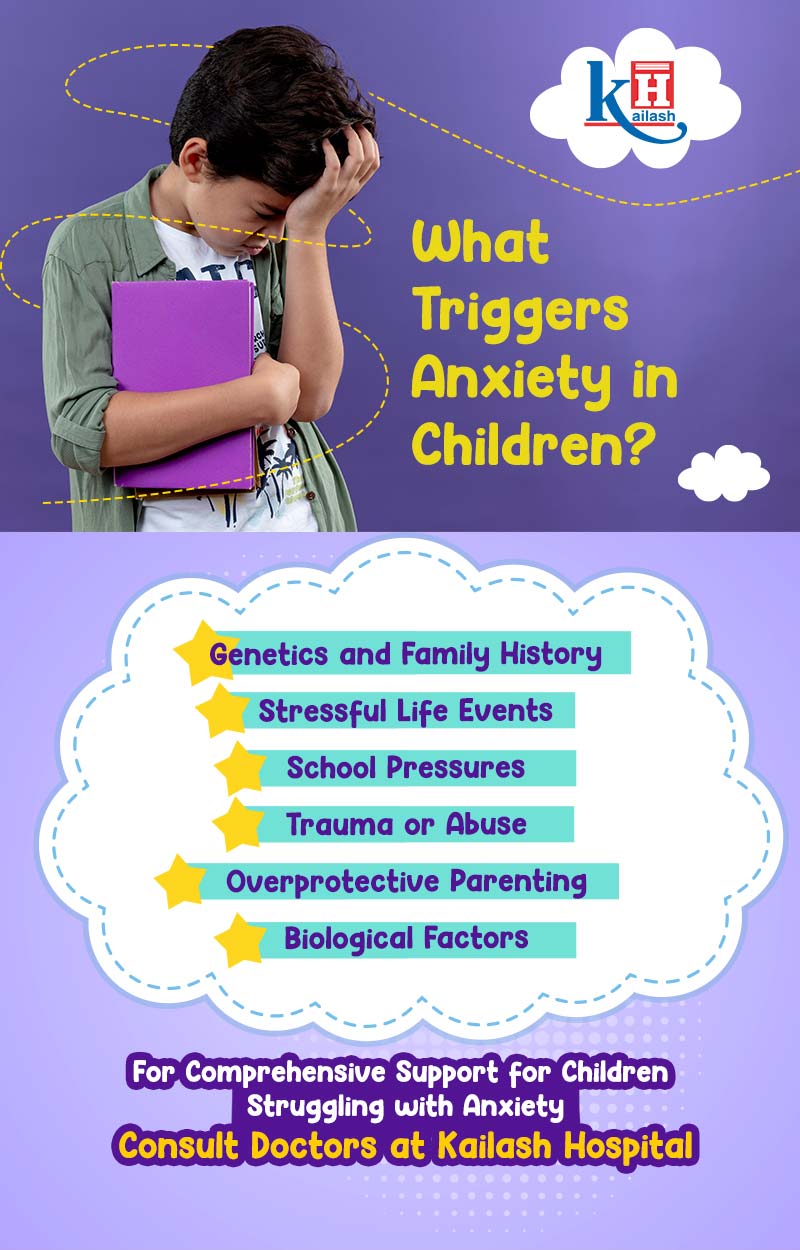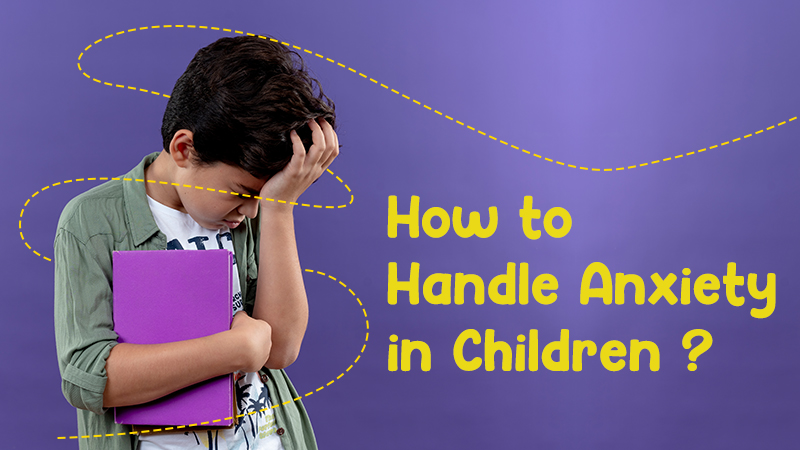How to Handle Anxiety in Children?
Verified By Dr. Megha Agarwal | 20-Feb-2024
Anxiety is a common experience for children, but when it becomes overwhelming, it can interfere with their daily lives and overall well-being. As parents and caregivers, it's crucial to understand the causes of anxiety in children and learn effective strategies to help them navigate through their emotions. Recognizing the signs of anxiety in children is also important to provide them the support they need. Symptoms may vary from child to child but can include excessive worrying, irritability, restlessness, difficulty concentrating, frequent physical complaints (such as headaches or stomachaches), avoidance of certain situations, and changes in sleep or eating patterns.
Table of Content
- Excessive Worry: Children may show signs of excessive worrying about future events or outcomes, often imagining the worst-case scenarios. This worrying may be persistent and interfere with their daily activities.
- Avoidance: Children with anxiety may avoid certain situations or activities that trigger their anxiety. This avoidance can impact their social, academic, or family life.
- Physical Symptoms: Anxiety can also manifest in physical symptoms such as stomachaches, headaches, muscle tension, fatigue, sweating, shortness of breath, or a rapid heartbeat.
- Difficulty Concentrating: Anxiety can make it challenging for children to concentrate or focus on tasks. This may result in poor academic performance or difficulty completing assignments.
- Irritability or Restlessness: Anxiety can lead to irritability or restlessness in children. They may become easily annoyed, agitated, or fidgety, and this may interfere with their ability to interact with others or engage in activities.

By recognizing the triggers and implementing appropriate support, we can empower children to manage their anxiety and thrive. Here are common causes of anxiety in children:
- Genetics and Family History: Anxiety disorders can sometimes run in families, suggesting a genetic predisposition. Children with a family history of anxiety disorders may be more susceptible to experiencing anxiety themselves.
- Stressful Life Events: Significant life changes such as moving to a new school, parental divorce, the birth of a sibling, or a serious illness can trigger anxiety in children. These events disrupt their sense of stability and security, leading to feelings of uncertainty and fear.
- School Pressures: Academic demands, social interactions, and performance expectations at school can overwhelm children, triggering anxiety. Fear of failure, perfectionism, bullying, or social rejection are common stressors that contribute to school-related anxiety.
- Trauma or Abuse: Children who have experienced trauma or abuse may develop anxiety as a result of the distressing memories and feelings associated with their past experiences. These unresolved emotions can manifest in various forms of anxiety, including generalized anxiety disorder or post-traumatic stress disorder (PTSD).
- Overprotective Parenting: While it's natural for parents to want to protect their children from harm, excessive overprotection can inadvertently fuel anxiety. Overprotective parenting restricts children's autonomy and opportunities for independence, preventing them from developing essential coping skills and resilience.
- Biological Factors: Imbalances in brain chemistry or hormonal changes can contribute to anxiety disorders in children. Conditions such as attention-deficit/hyperactivity disorder (ADHD) or autism spectrum disorder (ASD) often coexist with anxiety disorders, making it essential to address all underlying factors.
Kailash Hospital's Child Psychology and Psychiatric services offer comprehensive support for children struggling with anxiety. Through a multidisciplinary approach, our team of experienced professionals assesses each child's unique needs and develops tailored treatment plans. Therapeutic interventions such as cognitive-behavioral therapy (CBT), play therapy, and relaxation techniques are employed to help children understand and manage their anxiety effectively.
Moreover, we at Kailash Hospital prioritize collaboration with parents and caregivers, providing them with guidance and resources to support their child's mental health journey. By fostering a supportive and nurturing environment both at home and in therapy sessions, we empower children to build resilience, develop coping skills, and cultivate a positive mindset.
So, we can say that addressing anxiety in children requires a holistic approach that considers the various factors contributing to their distress. If your child is suffering from any of the symptoms of Anxiety, you can consult with doctors at Kailash Hospital.



 +91-9711918451
+91-9711918451
 international.marketing@kailashhealthcare.com
international.marketing@kailashhealthcare.com








